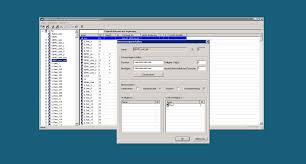
The Power of DM Document Management System
In today’s fast-paced digital world, managing documents efficiently and securely is crucial for businesses of all sizes. This is where a robust Document Management (DM) system comes into play. A DM system is a software solution that helps organizations store, manage, track, and retrieve electronic documents and images with ease.
One of the key benefits of a DM system is its ability to centralize document storage, enabling users to access files from anywhere at any time. This not only improves collaboration among team members but also enhances productivity by eliminating the need to search through physical file cabinets or multiple folders on a computer.
With a DM system, businesses can ensure data security and compliance with regulations by setting access controls, versioning documents, and tracking changes made to files. This level of control helps prevent unauthorized access to sensitive information and maintains the integrity of important documents.
Furthermore, a DM system streamlines document workflows by automating tasks such as document routing, approval processes, and notifications. This reduces manual errors, speeds up document processing times, and enhances overall efficiency within an organization.
Integration with other business applications is another advantage of using a DM system. By connecting the DM system with tools such as customer relationship management (CRM) software or enterprise resource planning (ERP) systems, businesses can create seamless workflows that improve data accuracy and decision-making processes.
In conclusion, investing in a DM system can revolutionize how your organization manages documents and information. From improved collaboration to enhanced security and streamlined workflows, the benefits of implementing a DM system are vast and impactful. Embrace the power of technology with a reliable DM system and take your document management practices to the next level.
Understanding DMS: Key Questions About Document Management Systems
- What is DMS data management system?
- What is a DM in software?
- What is DM in management information system?
- What is the difference between CMS and DMS?
What is DMS data management system?
A frequently asked question about DM Document Management System is: “What is DMS data management system?” A DMS, or Document Management System, is a software solution designed to store, organize, track, and manage electronic documents and images within an organization. It provides users with a centralized platform to securely store and retrieve files, ensuring easy access to information while maintaining data integrity and security. By implementing a DMS data management system, businesses can streamline document workflows, enhance collaboration among team members, improve productivity, and ensure compliance with regulations.
What is a DM in software?
A DM, or Document Management system, in software refers to a specialized solution designed to help organizations efficiently store, organize, and manage electronic documents and files. By utilizing a DM system, businesses can streamline document workflows, enhance collaboration among team members, ensure data security through access controls and versioning, and improve overall productivity by providing easy access to critical information. Essentially, a DM system serves as a centralized repository for digital documents, offering features that facilitate document retrieval, tracking changes, automating processes, and integrating with other business applications for seamless operations.
What is DM in management information system?
In the context of a Management Information System (MIS), DM refers to Document Management, a critical component that focuses on organizing, storing, and retrieving electronic documents and data within an organization. DM plays a key role in streamlining document workflows, ensuring data security, and facilitating efficient collaboration among team members. By implementing a robust DM system within an MIS framework, businesses can enhance information management practices, improve decision-making processes, and boost overall operational efficiency.
What is the difference between CMS and DMS?
When comparing Content Management Systems (CMS) and Document Management Systems (DMS), it’s essential to understand their distinct functions. While a CMS primarily focuses on creating, managing, and publishing digital content such as web pages, articles, and multimedia, a DMS is specifically designed for storing, organizing, and tracking electronic documents and files. CMS platforms are ideal for content creation and website management, offering features like version control, collaboration tools, and content scheduling. On the other hand, DMS solutions excel in document storage, retrieval, security controls, and workflow automation. Understanding the differences between CMS and DMS can help organizations choose the right system to meet their specific needs for content creation or document management.
